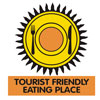



Please Login with Online Tourism Business Licensing Service (OTBLS)
OR
 Online Registration Guidance Document
Online Registration Guidance Document
Need to change Email ? Please fill this form  and send to otblshelp@srilanka.travel
and send to otblshelp@srilanka.travel
View Mandatory Registration Notice English සිංහල
 View Requirements for Finance Clearance
View Requirements for Finance Clearance
 Notice to VAT Registered Persons
Notice to VAT Registered Persons
SQA License Renewal Payment
Please kindly note, with immediate effect, cash and cheque deposits will no longer be accepted for license renewal payments. To ensure efficient and secure processing, only online transactions will be permitted to the following account.
Bank: BOC Corporate Branch
A/C Name: Sri Lanka Tourism Development Authority
A/C No: 79746281
(Designated exclusively for license renewal payments)
This change has been implemented to improve transaction traceability and processing efficiency. We appreciate your understanding and cooperation.
Tourism Development Levy (TDL) Payment
Please note that only the bank transfer payment option is available at this time. Please remember to upload your payment slip to the system.
Bank: BOC Corporate Branch
A/C Name: Sri Lanka Tourism Development Authority
A/C No: 73104820
Please take your SLTDA registration number (e.g., SLTDA\SQA\…\…) with you when visiting the bank to make the payment.
Once the payment is accepted by SLTDA, you will receive a system-generated email confirmation.
Download Application ![]()



Hotel facilities usually include en-suite bathrooms, air conditioning or climate control, telephone facilities, an alarm clock, a television, and internet connectivity (free, or to be purchased.)The rooms may be equipped with a mini-bar, a kettle, and tea and coffee making facilities. Larger hotels may provide a number of additional guest facilities such as a restaurant, a swimming pool, and childcare services. Many hotels also offer conference and social function services.
For further details, please contact our representatives.


Boutique hotels and villas are usually luxurious, personalized, or quirky hotels environments. They differentiate themselves from the larger chain and branded hotels and motels by providing personalized accommodation, with superior services, focusing on ambiance and privacy. They are also known as "design hotels" or "lifestyle hotels."
For further details, please contact our representatives.

"Please note that the guidelines for both Boutique Hotels and Boutique Villas are the same. However, Boutique Villas must have a minimum of 5 rooms."
A Tourist Guest House is an accommodation establishment offering five or more beds, catering primarily to travelers seeking a less formal lodging experience than hotels. Typically, Tourist Guest Houses provide overnight stays along with optional food & beverage services, emphasizing a cozy and welcoming atmosphere for guests.
For further details, please contact our representative.

Home stays are becoming popular providers of tourist accommodation. This is the practise of renting out a room or residence of a local resident. The terms of home stays may vary and are usually agreed upon in advance between the host and the guest.
For further details, please contact our representative.


Registration of Bungalow, Heritage Home, Heritage Bungalow, Rented Homes, Rented Apartments(Sinhala)
Home Stay Unit is a concept that provides maximum 4 bed rooms in your own residence with lodging arrangement where individuals, typically travelers or students, reside in a private residence with a host family. In a homestay, guests often have their own room and share common spaces, such as the kitchen and living room, with the host family. This type of accommodation offers a more immersive experience into the local culture, as guests have the opportunity to interact with and be a part of the daily life of the host family. Homestays are common in various contexts, including travel, cultural exchange programs, and language learning experiences.
For further details, please contact our representative.

Service Apartments offer similar services to hotels, but they provide mini-apartment style units, rather than stand-alone rooms. They utilize a booking system similar to a hotel and offer amenities including a kitchenette.
“Please note the following is a draft version of the gazette and is in evolution. Kindly do not base your final construction/business plans on this document. You may, however, refer to this for purposes of discussion, and as to what may potentially be future law.”
A Hostel Accommodation is a budget-oriented, shared-rooms or "dormitory" accommodation for individual travelers (commonly backpackers) or groups for short-term stays with common areas and facilities.

A Tourist Accommodation facility developed according to a “Theme” based on environmental and/or cultural features capitalized with design, fixtures and materials, highlighting the “Theme” enabling the guest to see, feel and experience the “Theme.”

A camping and/or caravanning site is defined as a demarcated area of land specifically developed to provide sleeping accommodation either in tents or in caravans and also common amenities for living, in an environment bordering or encircling outstanding natural or cultural attractions. These can be located either in a restricted area (e.g. wildlife, nature and forest reserves or buffer zones or sacred areas) or in a non-restricted area.
For further details, please contact our representative.

Eco lodges is a visitor accommodation facility meeting minimum standards, designed and custom built in pristine natural locations, often of significant ecological importance, having strong programs of conservation protecting the environment from pollution and degradation, using technologies to reduce energy consumption and waste, having ethical employment practices and strong measures to pass on tangible socio economic benefits to the neighboring local communities. Commonly use best practice by eco lodges “Leave nothing but foot prints and take nothing but memories”.
For further details, please contact our representative.

Intangible culture is the principal motivation for travel, with Tourists seeking to engage with new cultures and to experience the global variety of performing arts, handicrafts, rituals, and cuisines, a niche high-end market of Tourists would prefer to stay in heritage enrich accommodation facilities during their travel.
As defined, A Heritage Tourist Hotel shall be located in a building declared under the Antiquities Ordinance No. 09 of 1940 or shall be in an ancient construction with Historical and Archaeological value which has been constructed prior to 1920 (not less than 100 years of age) which can be declared under the Antiquities (Amendment) Act No. 24 of 1988. The exterior of the building shall not be interfered with or modified from the original appearance. Any additions carried out shall be done in such a manner that the external appearance is maintaining the original architectural features as far as practically possible. After expansion and alterations the newly built-up area shall not be more than 50% of the combined total built-up area (excluding swimming pools) of the new and old. The services provided to the guests shall reflect the type of service which prevailed during the era of the building.
For further details, please contact our representatives.

A Tourist Apartment Hotel is a purpose-built facility consisting of a number of individual apartments, individually or wholly owned and including all hotel services operated by a single entity, with luxury star class facilities.
For further details, please contact our representatives.

A restaurant prepares and serves food and drink to customers. Meals are generally served and consumed, in-house although a takeaway and delivery service could also be available. Restaurants vary in appearance and offerings. A wide variety of cuisines and service models are offered.
Guests could be served by waiters or obtain their food from the counter or serve in buffet style.
Our staff at the SLTDA are always on hand to assist potential investors.

An aura of tranquility embraces you as you enter the precincts of an Ayurveda Health Centre. You are also advised on how to maintain your health and beauty. You are cleansed, exfoliated, massaged and wrapped in a rich herbal paste of flowers, bark, and leaves and rested, for juices to seep into your body and enrich your soul.
Almost all prescriptions used in curing are produced by raw materials found naturally and no artificial substances are used. These would come from the roots, stems, barks, leaves, flowers, seeds, fruits & nuts of many a plant. From the animals: milk, honey, pearls, musk, shells and from the earth: iron, gold, silver & copper are used.
A tourist is initiated to this great form of medication through Ayurvedic Health Centres, Health Spa's and Wellness Centres they frequent while on tour on our island. Most of the treatments practiced in these centers are based on Ayurveda and in some centers Japanese, Chinese & Thai methods of therapy, as well as Aromatherapy, is used.
Treatment is always administered under the guidance of an Ayurvedic medical practitioner or expert in spa method treatment. Combining the Ayurvedic form of medicine gives you not only relaxation of the mind and body, but will also treat the organs of the body to function properly through the administration of drugs using natural ingredients in relieving deep seated diseases as well as maintaining your good health.
Our staff at the SLTDA are always on hand to assist potential investors.

Today spices are grown in spice gardens of Sri Lanka for export purposes and to be used medicinally and in Sri Lankan cuisine and also as agro-tourism projects.
Cinnamon that is grown in spice gardens of Sri Lanka has been a favorite spice since ancient times. The plant is native to spice gardens of Sri Lanka. The smell of cinnamon in spice gardens of Sri Lanka is the sweetest and most delicious.
Cardamom is popular in the Middle East and is one of the most valuable spice crops of spice gardens of Sri Lanka. Cardamom plants require a shaded environment.
The real secret of the spice gardens of Sri Lanka is the curry leaf tree. The aroma coming from the freshly picked leaves can spice up an entire curry dish. It is a scent that can be smelled all over Sri Lanka and India.
Our staff at the SLTDA are always on hand to assist potential investors.

SLTDA offers tourist guides, chauffeur tourist guides and travel agents many varied types of training to ascertain their competence at the job, and to maintain industry standards. The Sri Lankan Institute of Tourism and Hotel Management has been set up to equip young men and women in the multifaceted field of Hospitality and Travel.
For further details, please contact our representatives.

An establishment with a minimum of 8 covers and a maximum of 39 covers where prepares and/or serves food, drink, and dessert to customers on the commercial operation.
The “eating places” which are taken into consideration here are the places that do not comply with gazetted registration guidelines for restaurants by SLTDA but similar places that cater to the domestic and foreign travelers mainly in touristic areas.
Grade A – For those places who got more than 75% at the final inspection

Grade B- For those places who got between 50% and 74% at the final inspecti

Way Forward…
It is intended to implement the same Certification scheme in all tourism zones in the country and to give publicity to the logo of “Tourism Friendly Eating Places” in Local print and electronic media and in international magazines and websites.

Shops that are set up for tourism purposes are permitted to sell merchandise from a fixed location, such as a department store, small stores and through the post. Retailing may include subordinated services, such as delivery. Purchasers may be individuals or businesses
Our staff at the SLTDA are always on hand to assist potential investors.

Travel Agents (Destination Management Companies)
Travel Agencies is a retail business, that sells travel-related products and services, particularly package tours to customers, on behalf of suppliers, such as airlines, car rentals, cruise lines, hotels, railways, sightseeing tours, and tour operators
In addition to dealing with ordinary tourists, most travel agencies have a separate department focused on arranging travel itineraries for business travelers. Certain travel agencies specialize in commercial and business travel. There are also travel agencies that serve as general sales agents for foreign travel companies, allowing them to have offices in countries other than where their headquarters are located. Our staff at the SLTDA are always on hand to assist potential investors.

With an endless variety of white sandy golden beaches, Sri Lanka offers a vibrant range of adventure sports in Sri Lanka. Azure waters with a colorful variety of marine species and unceasing spotless beaches offer ample opportunities for adventure sports in Sri Lanka. The colorful corals invite you to take the plunge into the deep waters.
You can also see several ancient wrecks, caves & fascinating reef formations while engaging in scuba diving, one of the major Sri Lanka adventure sports.
Sheltering over 90 species of freshwater fish & 21 species of crabs, Sri Lanka offers a fascinating experience of fishing, one of the major adventure sports in Sri Lanka. Several quiet bays lined up with a variety of private villas along the south coast offer you an exciting & wonderful experience with a variety of opportunities for adventure sports in Sri Lanka.
Our staff at the SLTDA are always on hand to assist potential investors.

Proposed Adventure Activities
Tourist Driver Training Course and Tourist Driver Refresher Course - 2025
These programmes are now conducted by the Sri Lanka Institute of Tourism and Hospitality Management (SLITHM)
APPLICATION FOR THE NEW TOURIST DRIVER IDENTITY and RENEWAL OF THE TOURIST DRIVER IDENTITY
Upon successful completion of the Tourist Driver Training Course or Tourist Driver Refresher Course, the applicant will receive an email correspondence with details to apply for the New Tourist Driver Identity or Renew Tourist Driver Identity
Note: Applicants for renewal of the Tourist Driver Identity from 2025 are requested to complete the Tourist Driver Refresher Course by SLITHM prior to applying for renewal of the Tourist Driver Identity.
Food court, as a special catering service place, has its own unique attractive character where a very wide variety of cuisine is available in one location. The unique ambience, very different from a conventional restaurant, created in a food court will provide an experience where the gustatory and optic nerves simultaneously will allure you to linger on, even if one is not really hungry or too tired to sit through a full meal. That is the charm of a food court.
A food court is generally an indoor or outdoor plaza or common area within a facility that is contiguous with the counters of multiple food vendors and provides a common area for self-serve dining.

|
Registration Fee |
Renewal Fee |
||||||
|
Category |
Admin |
Registration |
License |
Total |
Admin |
License |
Total |
|
Food Court |
10,000 |
15,000 |
10,000 |
35,000 |
10,000 |
10,000 |
20,000 |
Destination Events in Sri Lanka, organized by Local Event Management Companies, are designed to boost Sri Lanka's attractiveness as a destination for both local and international participants. Virtual Events occur online, while Hybrid Events combine physical and virtual components, engaging both on-site and remote audiences.
Physical Events involve in-person gatherings. Destination Event Management Companies (DEMC) oversee event planning and execution in Sri Lanka, regardless of the event type.
Meetings & Incentives Management Companies (MIMC) specialize in corporate meetings and incentive events, handling logistics and execution. Conference Management Companies (CMC) professionally organize large events for smooth operations.
Trade Fairs/Exhibitions/Seminars Management Companies (TESMC) coordinate trade shows, exhibitions, and seminars to promote networking and knowledge sharing.
Destination Wedding Management Companies (DWMC) manage all aspects of weddings in Sri Lanka, including legal requirements.
Corporate Business Event Management Companies (CBEMC) ensure successful corporate events, from conferences to product launches.
Sprint/Stage Races Management Companies (SSRMC) organize adventure racing events with logistical support and safety measures.
International Sport Event Management Companies (ISEMC) handle global sports events with logistics and media coverage.
Other Event Operators (EO) manage various gatherings, ensuring seamless execution for diverse events, from music shows to recruitment drives.

Tourist vessel operations in Sri Lanka offer a unique experience for visitors to explore the island's beautiful coastline and surrounding waters. From exploring water creatures to island hopping, tourists can enjoy a variety of activities on these vessels, accompanied by experienced crew members. With safety as a top priority, these vessels provide a thrilling adventure while maintaining high standards of service to tourists.

We are delighted to announce that the Sri Lanka Tourism Development Authority has collaborated with a committee of professionals, including industry experts, to develop guidelines for a series of Adventure Tourism Activities. These guidelines have been published herewith to create awareness within the industry for both air-based and water-based activities. We are also pleased to inform you that guidelines for land-based Adventure Tourism activities will be published in the near future.
To ensure the safety of all visitors, we highly recommend that all industry professionals adhere to the guidelines set by the Sri Lanka Tourism Development Authority. We are currently developing an online application system for registration of Adventure Tourism Activities, and we will be updating our website with more information on registration shortly.
Air Based Activities:
Air-based adventure tourism activity" means an activity carried out in the air with adequate safety requirements in an exclusively demarcated area without posing any danger or causing pollution to the natural environment. This may include skydiving, paragliding, paramotoring, hot air ballooning, and other similar activities.

Hot Air Balooning
Paragliding
Paramotoring
Sky Diving
We are delighted to announce that the Sri Lanka Tourism Development Authority has collaborated with a committee of professionals, including industry experts, to develop guidelines for a series of Adventure Tourism Activities. These guidelines have been published herewith to create awareness within the industry for both air-based and water-based activities. We are also pleased to inform you that guidelines for land-based Adventure Tourism activities will be published in the near future.
To ensure the safety of all visitors, we highly recommend that all industry professionals adhere to the guidelines set by the Sri Lanka Tourism Development Authority. We are currently developing an online application system for registration of Adventure Tourism Activities, and we will be updating our website with more information on registration shortly.
Water Based Activities:
“Water-based Adventure Tourism activity” means - an activity carryout in inland, brackish & marine water with adequate safety requirements in an exclusively demarcated area without any danger or pollution to the natural environment. This may include Whale & Dolphin Watching, White Water Rafting, Canoeing & Kayaking, Dragon Boating, Scuba Diving /Snorkeling, Surfing/Body Boarding/paddle Boarding, Kite Surfing/Wind Surfing and other similar activities.

Kite Surfing / Kite Boarding / Wind Surfing
Whale and Dolphin Watching
Rafting / White Water Rafting
Surfing / Body Boarding / Paddle Poarding
Leisure Boat / Small Vessel Operations
Scuba Diving / Snorkeling
Water Skiing / Wake Boarding
Sport Fishing
Rowing
Sailling
Camping is an outdoor activity involving overnight stays in temporary or semi-permanent shelters, with or without essential services. Organized camping primarily occurs at pre-selected camp sites, defined as designated areas of land offering sleeping accommodations in tents or caravans, along with common amenities, near outstanding natural or cultural attractions. These sites may be situated in restricted areas like wildlife reserves or unrestricted ones.
Camping options include:
1. Tourist Luxury Camping/Glamping: Providing premium and deluxe facilities, Glamping offers a more luxurious camping experience than traditional camping.
2. Caravan Camping/RVs: RV camping allows travelers to stay in recreational vehicles with amenities like sleeping quarters, kitchens, and bathrooms, combining the comforts of home with the freedom of camping.
3. Mobile Camping: Also known as expedition or mobile tented camping, it involves setting up and relocating camps frequently, allowing participants to explore diverse landscapes.
These guidelines aim to ensure safe and enjoyable camping experiences catering to various preferences, from the simplicity of traditional camping to the luxury of Glamping and the mobility of RV and mobile camping, while emphasizing the importance of conservation.
A vehicle safari tour operation refers to a business or service that organizes and conducts guided tours operated by professional safari operators, stationed outside those national parks and reserves. in specially designed vehicles to explore natural habitats, wildlife reserves, or scenic landscapes authorized by the Department of Wildlife conservation or the Department of Forest Conservation or relevant government institutions. These tours typically focus on providing participants with an immersive and close-up experience of observing wild animals, birds, and other natural attractions in their native environment with degree of risk.
Hiking, trekking, and nature & heritage walks are distinct outdoor activities that vary in terms of difficulty, duration, and focus. Hiking typically involves moderately easy walks on well-marked trails, usually lasting half a day to a full day, with the level of difficulty depending on the location and terrain.
On the other hand, trekking is more challenging, featuring longer journeys with rougher terrain. Trekking adventures often span two or more days and require greater physical endurance.
Nature & Heritage Walks combine an exploration of natural and heritage areas, with a guide providing insights into the local ecology and historical significance of the surroundings. These walks can take place on either public or private land, each with its own set of legal requirements, guidelines, and visitor facilities.
Whether on public or private land, participants can choose to embark on these experiences independently or enlist the services of a certified guide or an assigned "Trekker/Tracker" for a more informative and structured adventure. The choice between these activities ultimately depends on individual preferences, fitness levels, and the desire for a deeper understanding of the natural and cultural aspects of the terrain.
Caving also known as spelunking, is the recreational or adventurous Tourism Activity of exploring natural underground cavities and passages, such as caves and tunnels. Caving involves navigating through various geological formations, underground waterways, and sometimes tight or challenging spaces. It often requires specialized equipment and knowledge to ensure safety and to minimize environmental impact. Caving enthusiasts may explore caves for their geological, biological, archaeological, or simply adventurous aspects, and it can range from easy, guided tours to more technically demanding and advanced expeditions.
Caving is rapidly gaining popularity as a prominent form of eco-adventure tourism in Sri Lanka. Various caving activities have emerged in different geographical and topographical areas across the country
High Rope Activities refer to Adventure Tourism Activities that involve participants navigating elevated obstacles, challenges, or courses, typically constructed above the ground and secured with ropes, cables, any other required materials and safety equipment. These activities are designed to provide individuals with a thrilling and physically demanding experience in an outdoor setting.
High rope courses often include elements such as ziplines, swinging bridges, burma or monkey bridge, cargo nets, balance beams, trapeze jump or spider jump, Jacob's ladder, giant’s ladder and other challenging structures.
Leisure Cycling and Mountain Biking are two different forms of cycling
Leisure Cycling and Mountain Biking can also be considered as Adventure Tourism Activities. The sport or activity of riding a bicycle. Cycle activities has three main forms: road racing (typically over long distances), pursuit (on an oval track), and Cyclo- Cross (over rough, open country).
Leisure Cycling: Leisure Cycling refers to the act of riding a bicycle on public roads, bike paths, or other paved surfaces. It can be used for transportation, exercise, or recreation. Road cycling typically involves riding a lightweight bike with thin tires on paved roads.
Mountain Biking :
Mountain biking involves riding a bicycle off-road on trails, dirt roads, or other unpaved surfaces. It often involves steep climbs, technical terrain, and descents that require skill and control. Mountain bikes are designed to handle these challenges, with features such as wider tires, suspension systems, and stronger frames.
While Leisure Cycling and Mountain Biking both involve riding a bicycle, they differ in terms of terrain, equipment, and skill requirements. Both can be enjoyable forms of exercise and recreation, and can provide opportunities to explore the outdoor attractions connected with nature & culture.
Leisure Cycling & Mountain Biking Operator :
Leisure Cycling & Mountain Biking Operator shall be a registered sole proprietor/ partnership or company who specialized in designing, planning, coordinating and organizing above leisure cycling & Mountain Biking activities for enthusiasts and adventure seekers. These organizers typically offer a range of services to ensure a well-organized and enjoyable experience for participants.
Rock Climbing, Wall Climbing, Abseiling, and Rappelling are exciting outdoor/ indoor activities that involve vertical ascent or descent using ropes and specialized equipment. These activities require proper training, preparation, and equipment to ensure the safety of participants. This guideline provides comprehensive regulations and practices for operators of rock climbing, wall climbing & abseiling activities, aimed at ensuring safety, environmental sustainability, and compliance with national and international standards.
Rock Climbing:
Rock climbing is the activity of scaling steep rock formations using specialized equipment such as ropes, anchors, and harnesses. It requires a combination of strength, skill, and technique to climb and navigate the rock surface.
Wall Climbing:
Wall climbing involves ascending man-made climbing structures designed to simulate the experience of outdoor rock climbing. These walls are typically constructed with a variety of holds and features that mimic natural rock formations. Wall climbing can take place indoors in climbing gyms or outdoors on specially designed walls.
Abseiling (Rappelling):
Abseiling, also known as rappelling, involves descending a vertical or near-vertical surface using a rope and specialized equipment. It is commonly used in outdoor adventure activities such as rock abseiling, canyoneering, waterfall abseiling, cave abseiling & Rope jumping. Rappelling is the process of descending a vertical or near-vertical surface using a fixed rope and is often used interchangeably with abseiling. Common activities include tower rappelling and chopper rappelling. The term "abseiling" is commonly used in Europe and other parts of the world, while "rappelling" is more prevalent in North America.

Luxary Camping / Caravanning / Mobile Camping
Hiking / Trekking / Nature & Heritage Walk
Vehicle Safari Tour Operations
Caving Expeditions
High Rope Activities
Leisure Cycling & Mountain Biking
Rock Climbing / Abseiling / Rappelling
A tourism app is a software product that runs on any information technology-based platform, such as the web, mobile, or virtual reality. It facilitates tourists by providing them with travel guides, maps, local attractions, accommodation booking, transportation options, restaurant recommendations, and other relevant information. Tourism apps can also be used to conduct commercial transactions, such as booking hotels.
To be considered a tourism app, the product must meet certain requirements, such as having a secure platform, providing adequate support to users, and operating as per industry standards. Tourism apps that are meant for facilitating tourists visiting Sri Lanka must also have a 100% owned legal entity registered within Sri Lanka.
The objective of the tourism app registration process is to recognize and formalize the services of tourism apps and companies that facilitate tourists visiting Sri Lanka. This will help to ensure that tourists receive satisfactory and legitimate services, and that they are protected under the law.

A Tourist City Tour Service Provider is either an individual or an organization providing sightseeing facilities to tourist in and around the city in safe and comfortable vehicles. The vehicles shall be chauffer driven with the services of a guide.
Registration of Association in Sri Lanka Tourism
Tourism industry stakeholders have incorporated Associations Island wide to assist their members to market their products & services. As the focal point, the Sri Lanka Tourism Development Authority (SLTDA) has decided to develop a proper communication channel with all the Associations involved in tourism by registering them.
Why registration is required?
The objective of this initiative is to standardize the Associations, their services and create a centralized database for easy and faster communication of the matters which are directly benefiting or affecting the industry such as a crisis.
Benefits of registration
**Not a License Holder

Important Notice: You will need to upload the required documentation to the system as part of the registration or renewal application process. Please note that copies certified by a lawyer confirming their authenticity, and marked as "true copies," may be submitted via a special Courier Service.
The details of the courier service will be sent to you via email during the application process. This service is available for both new registrations and renewals of licenses. Please DO NOT send any original documents to SLTDA for verification purpose, or personally deliver documents to SLTDA. Please contact our help desk for any clarification.